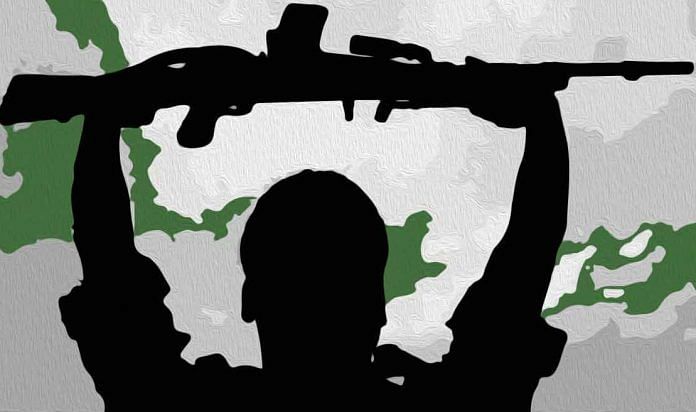Pakistan, Afghanistan and Nepal are members of the UN Human Rights Council. India, with a brilliant record of upholding human rights, has no representation.
In a first, in its 49-page report, the Office of the United Nations High Commissioner for Human Rights (OHCHR) has focused on Jammu and Kashmir and Pakistan-occupied Kashmir (PoK).
But, ironically, the report refers to Jammu and Kashmir as “consisting of the Kashmir Valley, the Jammu and Ladakh regions and ‘Pakistan-Administered Kashmir’ (Azad Jammu and Kashmir, and Gilgit-Baltistan)”.
Taking objection to the UN using terms such as “Azad Jammu and Kashmir” and “Gilgit-Baltistan” for PoK, the ministry of external affairs (MEA) has rubbished the report saying “the incorrect description of Indian territory in the report is mischievous, misleading and unacceptable. There are no entities such as ‘Azad Jammu and Kashmir’ and ‘Gilgit-Baltistan’”.
The report appears to have gone far beyond its mandate by referring to India’s internal security concerns and anti-terrorism initiatives as being part of human rights violations. Not only are such references factually incorrect but they are highly inappropriate to be used by an official body of the UN, which is duty-bound to respect the sovereign rights and obligations of the largest democracy of the world.
There is a democratically elected government in Jammu and Kashmir, and New Delhi is committed to uphold the rule of law. The state and central government have taken serious view of the collateral damage and intrusions to civilians’ rights and freedom arising out of army action against terrorist outfits and acts of terrorism and violence sponsored from across the border.
The report is weirdly silent on dreaded terrorist outfits operating from Pakistani soil, fully supported, aided and abated by the ISI and Pakistan army. It is also silent on the inhuman excesses committed on the people of Gilgit, Baltistan and Balochistan, the genocide of freedom fighters in Balochistan and Sind, the mass graves of women and children in these areas, the forcible abduction of leaders who question the army excesses and the illegal occupation of areas by Islamabad.
Far from reporting the truth, the report ironically mentions the “killing of Hizbul Mujahideen terrorist Burhan Wani by the Indian army” and the resultant violent protests. The worst and unacceptable suggestion is the demand for an international enquiry into the army action and use of pellet guns in quelling violent protests.
Except for a brief reference to the “misuse of anti-terror legislation to persecute peaceful activists and quash dissent” by Islamabad, the UN report finds nothing amiss in a country that has scant respect for democracy and whose army was actually hiding Osama bin Laden at its headquarters.
In a rare use of strong words of condemnation of a UN report, the MEA has not only rejected the findings and suggestions of the report but has also raised a very pertinent point regarding an important constituent of the UN. The statement from the MEA says: “We are deeply concerned that individual prejudices are being allowed to undermine the credibility of a UN institution.”
The UN Human Rights Commissioner is expected to be a person of eminence, highly knowledgeable on international affairs, and free from prejudice. It is nobody’s argument that the present incumbent Zeid Ra’ad Al Hussein of Jordan is unsuited for the post. But the OHCHR reports are supposed to be taken seriously by the world community because they are records with far-reaching consequences in resolving international disputes.
The least that the OHCHR could have done is to take stock of the ground reality and be judicious in its approach towards a problem that should jolt the international community that loves peace and progress.
Ironically, the earlier commissioner, a person of Tamil origin hailing from South Africa, came under severe criticism for her alleged biased and insensitive references to the dispensation in Colombo while being silent on the human rights violations of a terrorist outfit like LTTE, which had no compunction in using women and children as human shield. Of the 103 resolutions by this council, 56 are reportedly condemning Israel for human rights violation but not one mentions Hamas.
Adopted 10 December 1948, the Universal Declaration of Human Rights is probably one of those resolutions followed more in violation than compliance. Pakistan, Afghanistan and Nepal are currently members (till 2020) of the UN Human Rights Council. India, with a brilliant record of upholding human rights and following the principle of looking at the world as ‘one family’ (vasudhaiva kutumbakam), has no representation in the council. New Delhi needs to be more pro-active in meeting with and sensitising the council on its viewpoint and ground realities.
Sadly, the OHCHR report has given a contemptible opportunity to India-bashers, a handful of despicable BJP-haters and candle-light brigade in India, who are dancing with glee over this biased lopsided report.
The last fortnight was witness to India’s increasing clout in the international arena – Prime Minister Modi rubbed shoulders with world leaders, he delivered an outstanding keynote address at the Shangri-La Dialogue in Singapore, India participated in the SCO summit. However, amid these headline-grabbing achievements, New Delhi should not overlook some of the warnings in fine print emanating from our immediate neighbourhood, be it Male, Colombo, Islamabad or Kathmandu.
The author is a security and strategic affairs commentator, and former editor of ‘Organiser’.




Liberalism in India is Islamism minus the topi!!
Secularism in India is Evangelism minus the Holy water.
Intellectualism is India is Hlnduphobia camouflaged in fine English!!
Is the human rights chief a radical Muslim?-
What nonsense people fighting in Balochistan are freedom fighters and very same people fighting against India in Kashmir are terrorist at least give balance view.
He writes like he is still an Editor of RSS’s Oberver Magazine.